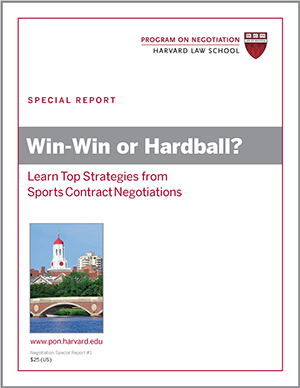
When negotiators come together after a period of mutual mistrust, it can be difficult for each side to reconcile their grievances with the other. Here are some win-win negotiation strategies that others have used to bring bargaining counterparts together even after a long, contentious period of silence
Back on December 17, 2014 the world was caught off-guard by the announcement that the United States was going to open up negotiations with Cuba with the aim of restoring full diplomatic relations between the two long-estranged nations. Another surprise twist to the story: Pope Francis was the chief instigator and mediator of the unexpected détente.
Negotiations between the Vatican and Cuba
A pivotal moment in the top-secret negotiations, which unfolded over the past year and a half, came when U.S. president Barack Obama visited the Vatican in March 2014. Pope Francis reportedly pressed Obama to forge a new era in U.S.-Cuba relations, CNN reports. According to Obama, the Pope was particularly concerned about the plight of Alan Gross, an American contractor who was serving a 15-year jail sentence in Cuba for trying to bring Internet services to Cuba.
Negotiating Tactics for Creating a Win-Win Negotiation Situation
The Pope followed up the private meeting with letters to both President Obama and to Cuban president Raúl Castro, urging them to work hard to restore relations. In October 2014, the Vatican hosted talks between the United States and Cuban delegations. At that meeting, the two sides hashed out details of Gross’ release and elements of the new U.S. trade policy toward Cuba, according to CNN.
Gross was released and flown home to the United States on December 17, 2014. As part of the broader agreement, the United States released three Cuban spies in exchange for a Cuban intelligence officer being held in Cuba. United States officials took pains to insist that Gross was not part of the prisoner swap.
Many Republican politicians condemned the prospect of normalization with Cuba, saying it would prop up the Castro regime economically and fail to address the pressing questions of human rights and democracy in Cuba.
But to Pope Frances, the announced deal appeared to be a clear win-win agreement. The Vatican Secretary of State released a statement expressing the Pope’s “warm congratulations for the historic decision” to establish diplomatic relations.
Roles at the Bargaining Table: Pope France as Ideal Mediator?
Both the Castro regime and the Obama administration viewed Argentinian-born Pope Francis, the first head of the Roman Catholic Church from Latin America, as their ideal mediator. Many of the Pope’s top advisors have experience in Latin America and special understanding of the situation in Cuba.
Speaking of the Pope’s role, one senior U.S. official told the New York Times that the negotiations were “less a matter of breaking some substantive logjam but more the confidence of having an external party we could rely on.”
The Vatican has had a history of taking a keen interest in Cuba. Frances and previous popes have been concerned about the impact of the longstanding U.S. economic sanctions against Cuba, believing they cause suffering for ordinary Cubans and isolate the Cuban government in a way that cuts off the possibility of diplomacy. The Vatican has been “focused on the human condition, rather than secular interests” in Cuba, Francis Rooney, a former U.S. ambassador to the Vatican, told CNN.
Yet the Catholic Church also has had a vested interest in Cuba. After Fidel Castro came to power in 1959 and, in 1961, declared Cuba a socialist state, thousands of Catholic priests and nuns were jailed and sent into exile. In the 1990s, Castro loosened rules on religion, changing the nation from officially atheist to secular. In 1998, Saint John Paul II, who was raised in communist Poland, visited Cuba and heralded the opening of the first new seminary to be built there since the revolution.
Today, about 60-70% Cuban population is believed to be Catholic, yet worship is restricted. The country has fewer than 200 priests, Archbishop Thomas Wenski of Miami told the Huffington Post. Some observers are now speculating that Cuba’s leaders will allow the Vatican to send more priests and nuns to the country—and that one of the stops on Pope Francis’ planned trip to Latin American this year will be Cuba.
Did we miss anything? Share your win-win negotiation strategies with our readers in the comments.
Related Win-Win Negotiation Article: Win Win Negotiation Example: Managing Your Counterpart’s Satisfaction
Originally published in 2015.





No Responses to “Win-Win Negotiation Strategies for Rebuilding a Relationship”